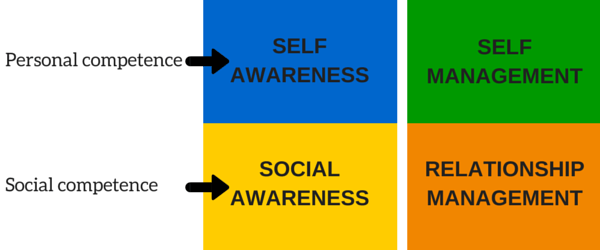This is the third in a series on the excellent book Emotional Intelligence 2.0 by Drs. Travis Bradberry and Jean Greaves. The book segments emotional intelligence into four areas: self-awareness, self-management, social awareness, and relationship management.

In this post, I will point out three specific tactics for improving relationship management. Relationship management is handy when it comes to dealing with conflict; by engaging and collaborating with others earlier than later, we prevent the inevitable blowup in the future.
1. Take Feedback Well
Receiving critical feedback is not easy for most of us. Resist the urge to get defensive or angry–remember that when you’re receiving feedback, it’s because the other person cares enough to say something and wants to see you improve for your own sake. They are not out to criticize.

While receiving the feedback, use social awareness skills to genuinely listen and understand the other’s perspective. Then, use self-management skills to internalize the feedback, sort through the aspects that are invalid, and come up with a plan for improvement. Lastly, by sharing your ideas for improvement, you clearly demonstrate to the other person that you’ve heard their feedback.
2. Acknowledge the Other Person’s Feelings
When you know someone is experiencing strong emotions, acknowledge their feelings in a positive way, and ask how you can help. Ask open-ended questions and listen intently; summarize back what you heard. As the book explains, “Simple acts like this one acknowledge emotions without making them a big deal, marginalizing them, or dismissing them.”
The best part? Recognizing the other’s feelings and employing empathetic listening will build trust and the relationship itself.
3. Offer a “Fix-it” Statement During a Broken Conversation
Conversations about conflict or other difficult situations have a bad tendency to turn into blame games, whining and griping, and overall negative and damaging situations. This isn’t good for anyone.

When one senses the conversation breaking down, a “fix-it” statement can help break the negative feedback loop. Are we here to win or to solve the problem? Acknowledge that we have a problem, and then offer one or two ideas for helping to fix it.
Fix-it statements work great because they are generally helpful, or at worst neutral, and they help us get out of a negative funk and into problem-solving mode.
Wrap-Up
Relationship management builds upon self-awareness, self-management, and social awareness skills. It takes a lot to do it well, and I hope these tips are a helpful start.
This is the third in a series on Emotional Intelligence 2.0 by Drs. Travis Bradberry and Jean Greaves.
- Improving Your Self-Management
- Improving Your Social Awareness
- Improving Your Relationship Management
- Improving Your Self-Awareness (coming soon)

